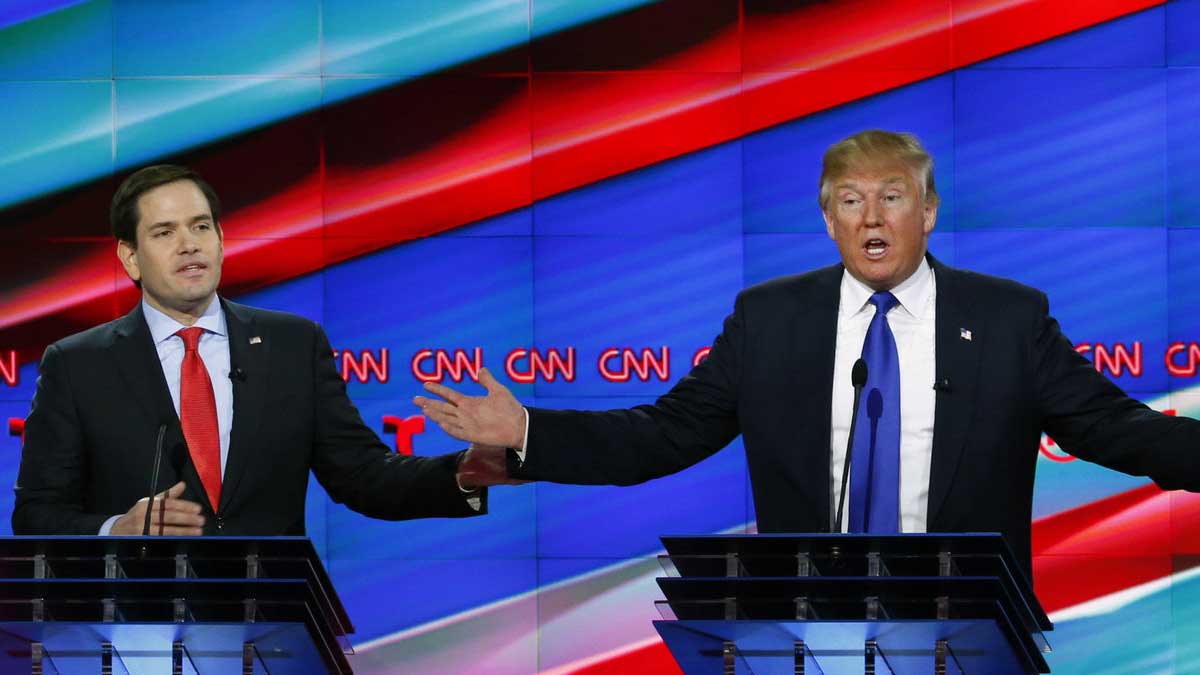- Home
- Billionaires
- Investing Newsletters
- 193CC 1000
- Article Layout 2
- Article Layout 3
- Article Layout 4
- Article Layout 5
- Article Layout 6
- Article Layout 7
- Article Layout 8
- Article Layout 9
- Article Layout 10
- Article Layout 11
- Article Layout 12
- Article Layout 13
- Article Layout 14
- Article Sidebar
- Post Format
- pages
- Archive Layouts
- Post Gallery
- Post Video Background
- Post Review
- Sponsored Post
- Leadership
- Business
- Money
- Small Business
- Innovation
- Shop
Recent Posts
Supreme Court Rejects ‘Trump Too Small’ Trademark Bid

The Supreme Court has ruled against a man seeking to trademark the phrase “Trump Too Small,” stating that a phrase naming a public official cannot be trademarked merely for criticism. Steve Elster, the man behind the challenge, intended to use the phrase on T-shirts criticizing Trump’s political agenda, particularly referencing a comment made by Sen. Marco Rubio during a 2016 presidential debate about the size of Trump’s hands.
The court’s unanimous decision favored the federal government’s rejection of Elster’s trademark application. Federal law prohibits trademarks that consist of or include the name, portrait, or signature of a living individual without their written consent. Elster argued that this law violated his First Amendment rights, asserting that trademarks using names should be allowed for criticism of public officials.
However, the Supreme Court disagreed, with Justice Clarence Thomas writing for the court that preventing trademarks on other people’s names is a longstanding practice that protects their reputation and goodwill. He emphasized that parties do not have a First Amendment right to benefit from another entity’s name recognition.
Justice Sonia Sotomayor, joined by Justices Elena Kagan and Ketanji Brown Jackson, wrote a concurring opinion, disagreeing with the reliance on historical precedent by the conservative justices but still agreeing that Elster lacked a First Amendment right to trademark “Trump Too Small.”
The ruling was clarified to apply narrowly to this specific case, with Thomas noting that it does not establish a broad framework for determining the constitutionality of all content-based but viewpoint-neutral trademark restrictions.
Notably, the Lanham Act, which prohibits trademarking living individuals’ names, also prohibits trademarking anything that names a deceased president without approval from the president’s widow if she is still alive. This means that even after Trump’s passing, “Trump Too Small” could not be trademarked without Melania Trump’s permission.
The case reached the Supreme Court after a lower court initially ruled in Elster’s favor, allowing the trademark. This decision adds to a series of trademark disputes the Supreme Court has addressed in recent years, including the approval of a trademark for a band called “The Slants” in 2017, which overturned a federal statute prohibiting trademarks that “disparage” people. The court also struck down a part of trademark law in 2019 that banned “immoral” or “scandalous” materials and ruled against a dog toy shaped like a bottle of Jack Daniels whiskey labeled “Bad Spaniels” last year.
Recent Posts
Categories
- 193cc Digital Assets2
- 5G1
- Aerospace & Defense46
- AI37
- Arts3
- Banking & Insurance11
- Big Data3
- Billionaires494
- Boats & Planes1
- Business328
- Careers13
- Cars & Bikes76
- CEO Network1
- CFO Network17
- CHRO Network1
- CIO Network1
- Cloud10
- CMO Network18
- Commercial Real Estate7
- Consultant1
- Consumer Tech180
- CxO1
- Cybersecurity68
- Dining1
- Diversity, Equity & Inclusion4
- Education7
- Energy8
- Enterprise Tech29
- Events11
- Fintech1
- Food & Drink2
- Franchises1
- Freelance1
- Future Of Work2
- Games141
- GIG1
- Healthcare78
- Hollywood & Entertainment186
- Houses1
- Innovation42
- Investing2
- Investing Newsletters4
- Leadership65
- Lifestyle11
- Manufacturing1
- Markets20
- Media193
- Mobile phone1
- Money13
- Personal Finance2
- Policy567
- Real Estate1
- Research6
- Retail1
- Retirement1
- Small Business1
- SportsMoney33
- Style & Beauty1
- Success Income1
- Taxes2
- Travel10
- Uncategorized8
- Vices1
- Watches & Jewelry2
- world's billionaires463
Related Articles
Trump Moves $4B Stake in Truth Social Parent, Stock Drops 6%
Donald Trump recently transferred his 57% stake in Trump Media & Technology...
By 193cc Agency CouncilDecember 20, 2024House Rejects Trump-Backed Funding Bill, Shutdown Looms
The U.S. House of Representatives rejected a new government funding bill on...
By 193cc Agency CouncilDecember 20, 2024Trump Named Time’s Person of the Year for Second Time
On Thursday, Time magazine honored Donald Trump as its “Person of the...
By 193cc Agency CouncilDecember 12, 2024Meta Donates $1 Million to Trump’s Inaugural Fund
Meta, the parent company of Facebook and Instagram, has confirmed a $1...
By 193cc Agency CouncilDecember 12, 2024















Leave a comment